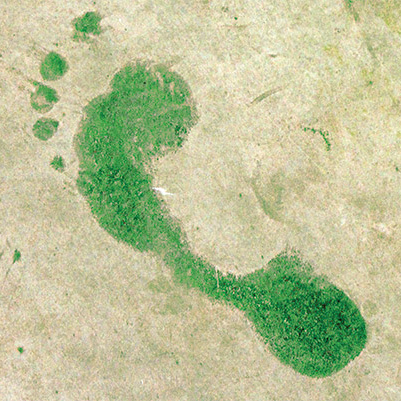
ENS de Lyon includes the ecological and social transition in its global strategy and strives to implement it in all its areas of activity.
Actors
Starting with a joint initiative by ENS de Lyon staff and students in 2019, an Ecological Transition Mission has been set up to structure the School actions. Today, all ENS de Lyon communities are in a position to get involved in these actions and initiatives in favor of the ecological transition.
Ecological Transition Officer: Pablo Jensen, physicist and CNRS researcher at the Physics Laboratory
Members of the Ecological Transition Mission:
- Vincent Baas, project manager
- Timothée Thomas,Sustainable Development & Corporate Responsibility (DD&RS) project manager
Sustainable Development & Corporate Responsibility (DD&RS)
Since 2022, ENS de Lyon has been committed to the Sustainable Development and Social Responsibility certification process known as DD&RS in French. Created by the Conférence des Grandes Écoles in 2015 and supported by the French Ministry of Higher Education and Research, this label makes it possible to promote the ecological transition and social responsibility approaches of French higher education and research institutions both nationally and internationally. 5 major themes have been considered: governance, training, research, environmental management and social policy. Find out more at: www.ens-lyon.fr/en / About us / Our commitments / Sustainable development
Reducing carbon footprint
ENS de Lyon has carried out an initial carbon assessment of its activities over a period covering 2019. A second carbon footprint was carried out in 2021.
Numerous actions have already been taken in terms of renovation, building construction and energy flow management. ENS de Lyon is committed to reducing its greenhouse gas emissions by 50% by 2030.
Awareness initiatives
In order to create a common culture throughout the School, ENS de Lyon offers a number of activities throughout the year to raise awareness about the challenges of the ecological transition, aimed at staff, students and the general public.
Key initiatives
- Conferences: all year long, the Ecological Transition Mission is organizing a series of conferences, inviting researchers and specialists in the fields of the Anthropocene, climate change and planetary limits.
- Screenings and discussions: screenings followed by discussions with the protagonists or film directors are organized for staff, teachers and students.
- Workshops to raise awareness: serious game sessions (Climate fresco, 2Tons workshop, Digital fresco) are regularly organized, giving us a better understanding of the causes and consequences of climate change, and encouraging us to act on our collective and individual carbon footprint.






